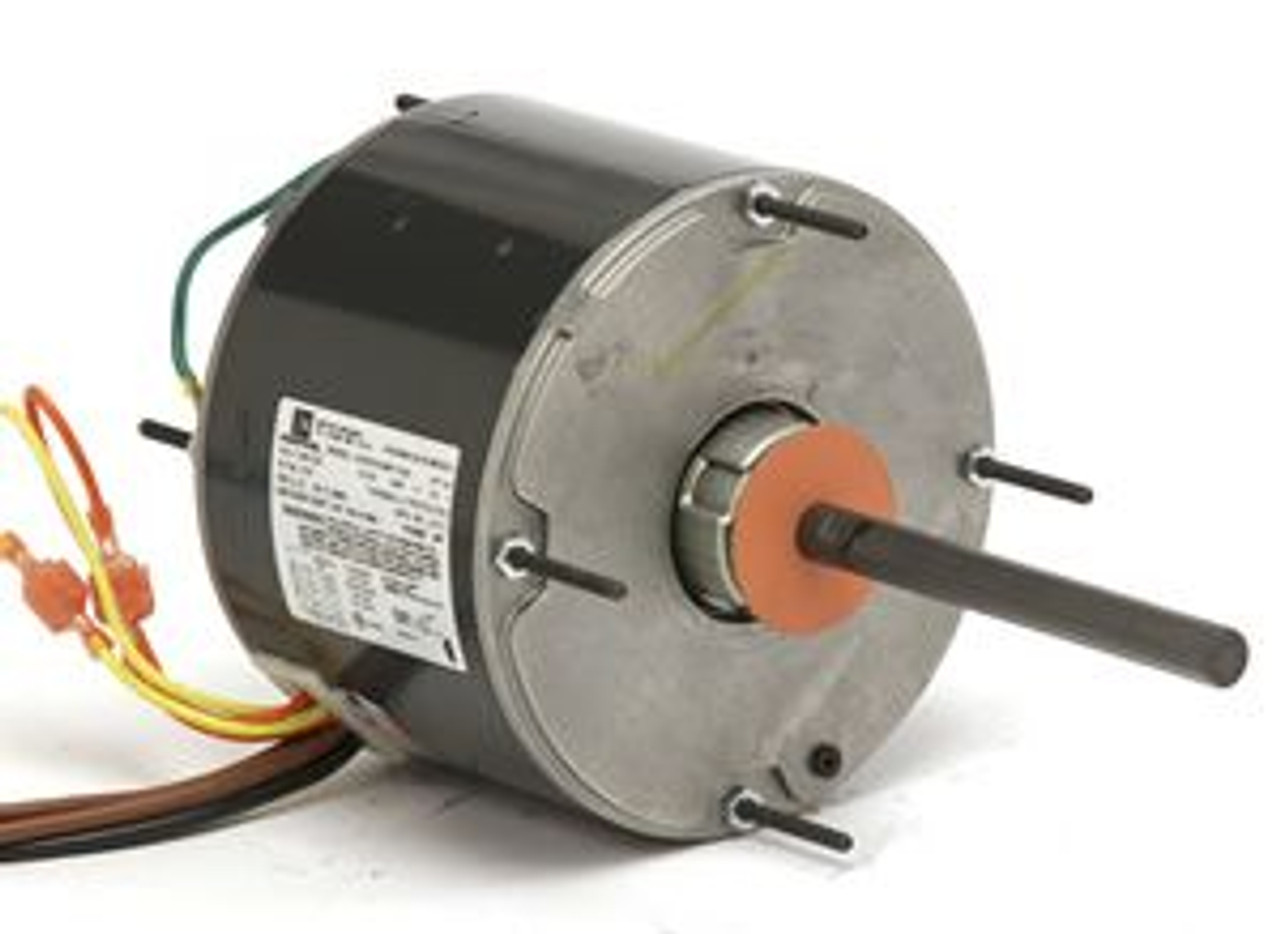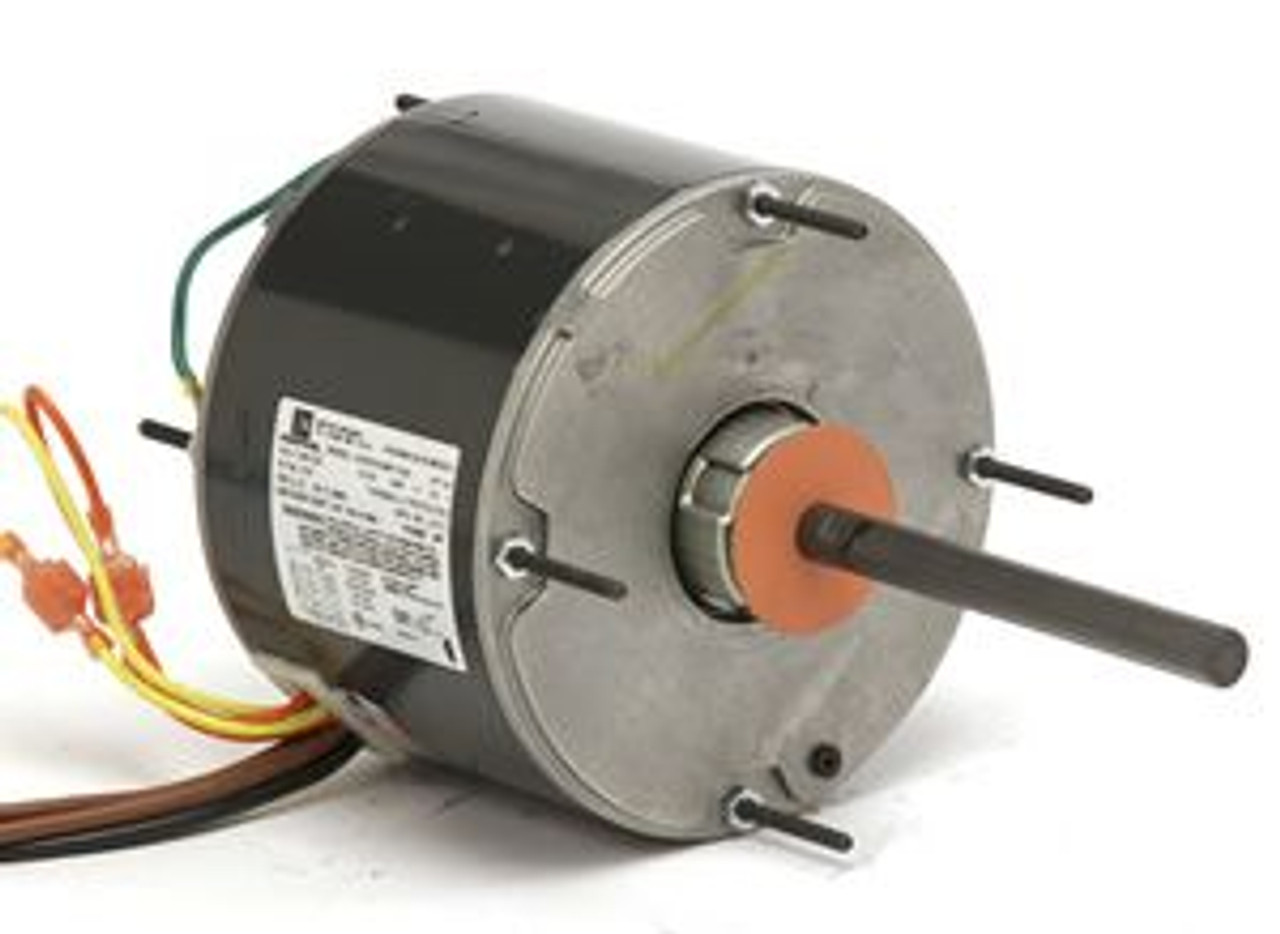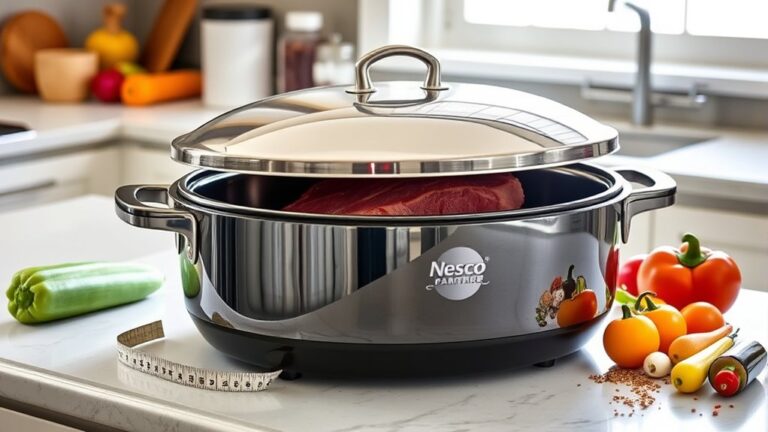What Does Condenser Fan Motor Do: Essential Cooling Role
Ever wondered why your air conditioner keeps your home cool even during the hottest summer days? The secret lies in the condenser fan motor.
This crucial component plays a pivotal role in ensuring your air conditioning system functions efficiently. Without it, your AC unit would struggle to maintain a comfortable temperature, leaving you sweltering in the heat. By understanding what the condenser fan motor does, you can better appreciate its importance and even troubleshoot potential issues.
If you’ve ever been curious about how this little motor works to make your life more comfortable, you’re in the right place. Keep reading to discover the vital role it plays and how it impacts the performance of your air conditioning system.
Role Of The Condenser Fan Motor
The condenser fan motor plays a crucial role in air conditioning systems. It ensures efficient heat dissipation. Understanding its function helps in maintaining system performance. This component is vital for cooling mechanisms.
Role In Heat Transfer
The condenser fan motor assists in moving air across the condenser coil. This process facilitates the cooling of refrigerant. It expels heat absorbed from indoor spaces. Without this motor, heat transfer would be ineffective.
Maintaining System Efficiency
A functioning condenser fan motor is essential for system efficiency. It prevents overheating by ensuring continuous airflow. This keeps the compressor running smoothly. A faulty motor can lead to increased energy consumption.
Impact On Longevity
The motor contributes to the longevity of air conditioning units. Proper airflow reduces wear on other components. It minimizes the risk of system breakdowns. Regular checks ensure the motor operates efficiently.
Importance In Temperature Regulation
The motor helps in regulating indoor temperatures. It maintains comfort by ensuring effective heat release. A well-functioning motor supports consistent cooling. This is critical for achieving desired indoor conditions.
Signs Of Motor Malfunction
Recognizing motor issues early can prevent major failures. Listen for unusual noises during operation. Check for reduced cooling efficiency. These signs may indicate motor problems. Addressing them promptly avoids costly repairs.
How Condenser Fan Motors Work
The condenser fan motor is an unsung hero in your air conditioning unit. Without it, the entire cooling process would come to a halt. But what exactly does this essential component do? Understanding how condenser fan motors work is crucial for maintaining your AC’s efficiency and extending its lifespan. Let’s take a closer look at its operation.
At its core, the condenser fan motor is responsible for moving air across the condenser coil. This airflow helps remove the heat that the refrigerant has absorbed from your indoor space.
Think of it like a giant fan in your backyard. As the blades spin, they push hot air away from the coil. This cooling process is vital to the function of your air conditioner.
Components Of A Condenser Fan Motor
Several components make up the condenser fan motor, each playing a distinct role. The motor itself powers the fan blades, creating the necessary airflow.
The blades, usually made of metal or durable plastic, are designed to withstand outdoor elements. These components work in harmony to ensure efficient cooling.
Signs Your Condenser Fan Motor Needs Attention
You might be wondering how to tell if your fan motor is in trouble. Listen for unusual noises like grinding or squealing. These sounds often indicate a motor issue.
Also, watch for overheating. If the motor feels excessively hot, it may be struggling to perform its task. Regular maintenance can prevent these problems.
Why Regular Maintenance Is Key
Have you ever ignored a minor car issue only for it to turn into a major problem? Your condenser fan motor is similar. Regular checks and cleanings keep it running smoothly.
Simple tasks like clearing debris from the fan blades can make a significant difference. This small effort can save you from costly repairs down the road.
When To Call A Professional
Not every issue can be resolved with DIY solutions. If your motor shows persistent problems despite maintenance, it’s time to contact a professional.
They have the expertise to diagnose and fix complex issues that might be beyond your reach. Protect your investment by seeking help when needed.
Have you ever experienced unexpected AC failure on a sweltering day? This often stems from neglected fan motor issues. Addressing these early keeps your home cool and comfortable.
Understanding how condenser fan motors work empowers you to take proactive steps in maintaining your air conditioning system. What steps will you take today to ensure your AC remains efficient?
Key Components
The condenser fan motor is crucial in cooling systems. It helps dissipate heat from your air conditioner or refrigerator. Understanding its key components can aid in proper maintenance and troubleshooting. Each part plays a vital role in ensuring efficient operation.
Fan Blades
Fan blades are essential for moving air across the condenser coils. They are usually made of metal or durable plastic. The design of these blades helps maximize airflow and efficiency. Properly functioning blades ensure effective cooling.
Motor Housing
The motor housing protects the internal parts of the fan motor. It shields components from dust, moisture, and debris. A sturdy housing prolongs the motor’s lifespan. It also reduces the risk of damage.
Bearings And Shafts
Bearings and shafts allow the fan blades to rotate smoothly. Bearings reduce friction between moving parts. This ensures silent operation and less wear and tear. Shafts connect the motor to the fan blades, ensuring they spin properly.
Importance In Cooling Systems
Understanding the role of the condenser fan motor is crucial for anyone dealing with cooling systems. This component is the unsung hero that ensures your system runs efficiently and effectively. Without it, your air conditioning or refrigeration system could struggle to cool your space, leading to discomfort and wasted energy. Let’s explore why this small motor plays such a significant role in cooling systems.
Heat Dissipation
The condenser fan motor is vital for heat dissipation. It helps remove heat from the condenser coils. You might have noticed the warm air blowing out of the back of your fridge or air conditioner. That’s the fan motor at work, expelling heat away from the system. Imagine trying to cool your home without getting rid of the heat—it just wouldn’t work. Proper heat dissipation ensures that the cooling system operates smoothly and efficiently.
Energy Efficiency
Energy efficiency is another key benefit of a well-functioning condenser fan motor. By efficiently removing heat, the motor allows the system to use less energy. This can lead to lower electricity bills. Wouldn’t you love to save a few bucks while keeping your home comfortable? A motor that runs efficiently reduces the workload on the compressor, which is often the most energy-consuming part of a cooling system.
System Longevity
System longevity is directly linked to the condenser fan motor. A motor that works effectively reduces wear and tear on other components. This means fewer repairs and replacements over time. Think of it as a small investment in your system’s health. When the condenser fan motor keeps temperatures in check, it prevents overheating and potential damage, extending the life of your cooling system.
Have you ever had to deal with a malfunctioning air conditioner? If so, you know how frustrating it can be. Understanding the importance of the condenser fan motor can help you avoid such problems. Next time you think about your cooling system, remember the vital role this motor plays in keeping things running smoothly.
Common Issues And Solutions
The condenser fan motor is crucial for your HVAC system’s efficiency. Like any mechanical part, it faces issues that need attention. Understanding these problems can save you time and money.
Overheating
Overheating is a common issue with condenser fan motors. It often results from dirt or debris buildup. This buildup restricts airflow, causing the motor to work harder and overheat. Clean the fan blades regularly to prevent this. Ensure the motor’s vents are clear. Improper voltage can also lead to overheating. Check the power supply for correct voltage levels. If overheating persists, consider professional inspection.
Motor Failure
Motor failure can disrupt your HVAC system’s functioning. A burnt-out motor winding is often the cause. Check for signs of burnt wires or unusual smells. Faulty capacitors can also lead to motor failure. Test the capacitor with a multimeter. If it reads zero, replace it. Regular maintenance can detect early signs of failure. It extends the motor’s life and prevents costly repairs.
Noise Problems
Noise problems can indicate a serious issue. Loose or worn-out bearings often cause noise. Inspect the motor for loose parts. Tighten any loose screws. Damaged fan blades can also create noise. Check for bent or broken blades. Replace them if necessary. Regular lubrication reduces friction and noise. If noise persists, seek professional help.

Credit: www.amazon.com
Maintenance Tips
The condenser fan motor plays a crucial role in cooling your home’s air conditioning system. It circulates air over the condenser coils, helping release heat absorbed from indoors. Regular maintenance ensures efficient functioning, preventing system overheating and costly repairs.
Maintaining your condenser fan motor is crucial for keeping your HVAC system running smoothly. If you’re like most people, you might overlook this small component, but neglect can lead to bigger problems. A little attention can extend its lifespan and save you money on costly repairs. Let’s dive into some practical maintenance tips that you can easily follow.Regular Cleaning
Dust and debris can accumulate on your condenser fan motor over time. This buildup can cause the motor to work harder, reducing efficiency and increasing the risk of overheating. Make it a habit to clean the motor regularly. Use a soft brush or a cloth to wipe away dirt. For more stubborn grime, a gentle vacuum can do wonders. Pay attention to the fan blades as well. Dirty blades can affect airflow and make your system less effective. A quick wipe-down can make a significant difference.Lubrication
Lubrication is like a magic potion for moving parts. Without it, your condenser fan motor can suffer from friction and wear down faster. Check if your motor requires lubrication. Some motors are sealed and don’t need it, while others have oil ports. If yours does, add a few drops of oil to keep it running smoothly. Use a high-quality oil recommended by the manufacturer. Over-oiling can be just as harmful as not oiling at all, so keep it moderate.Inspection Routine
Regular inspections can catch problems before they become serious. Set a schedule to check your condenser fan motor at least every few months. Look for signs of wear, such as cracks or frayed wires. Listen for unusual noises, which can indicate issues like loose parts or misalignment. If you’re unsure about what you see or hear, don’t hesitate to consult a professional. It’s better to spend a little now than a lot later. Have you ever thought about how much a simple routine can save you? Taking these steps not only ensures your system’s efficiency but also gives you peace of mind. Your condenser fan motor might be small, but its role is mighty. Give it the care it deserves.Choosing The Right Condenser Fan Motor
Choosing the right condenser fan motor is crucial for efficient cooling. A well-matched motor ensures your air conditioning system runs smoothly. It saves energy and extends the life of your unit. Consider a few key factors before making a decision. These include compatibility, power ratings, and durability.
Compatibility
Compatibility is the first thing to check. The motor must fit your specific air conditioning model. Check the make and model number of your unit. Ensure the motor matches these details. Using a mismatched motor can cause problems. It might not fit or work properly. This could lead to system failure or damage.
Power Ratings
Power ratings are another critical aspect. Each motor has a specific power rating. This tells how much energy it uses. A motor with too high a rating uses more energy. This increases your electricity bill. Too low a rating and it won’t cool effectively. Match the motor’s power rating with your system’s requirements.
Durability Factors
Durability is about how long the motor lasts. Look for motors made from quality materials. These last longer and withstand harsh conditions. Consider the motor’s warranty period. A longer warranty often indicates better durability. Regular maintenance also boosts a motor’s lifespan.

Credit: indoorcomfortsupply.com

Credit: www.amazon.com
Frequently Asked Questions
What Is A Condenser Fan Motor?
A condenser fan motor is crucial for HVAC systems. It helps cool the refrigerant by blowing air over the condenser coil. This process dissipates heat, ensuring efficient system operation. Without it, the system could overheat, leading to potential damage and reduced performance.
How Does A Condenser Fan Motor Work?
A condenser fan motor operates by spinning a fan blade. This blade circulates air over the condenser coil. The airflow removes heat from the refrigerant, cooling it effectively. The motor’s function is vital for maintaining optimal system efficiency and preventing overheating.
Why Is My Condenser Fan Motor Noisy?
A noisy condenser fan motor might indicate several issues. Common causes include worn bearings, debris in the fan, or motor failure. Regular maintenance can prevent these problems. Addressing noise early can avoid further damage and ensure efficient system operation.
Can A Faulty Condenser Fan Motor Affect Cooling?
Yes, a faulty condenser fan motor can impact cooling. It may fail to dissipate heat from the refrigerant. This can lead to reduced cooling efficiency and potential system overheating. Prompt repair or replacement is necessary to restore optimal cooling performance.
Conclusion
Understanding the condenser fan motor is crucial. It keeps your air conditioner running smoothly. This small part helps cool the system. Without it, the unit overheats. Overheating leads to damage. Regular checks prevent costly repairs. Ensure it functions properly. Listen for unusual noises.
Check for worn-out parts. Replace faulty ones promptly. A well-maintained fan motor boosts efficiency. Saves energy too. Remember, a cool home starts here. Keep your air conditioner in top shape. Your comfort depends on it. Stay proactive and enjoy a comfortable climate.



